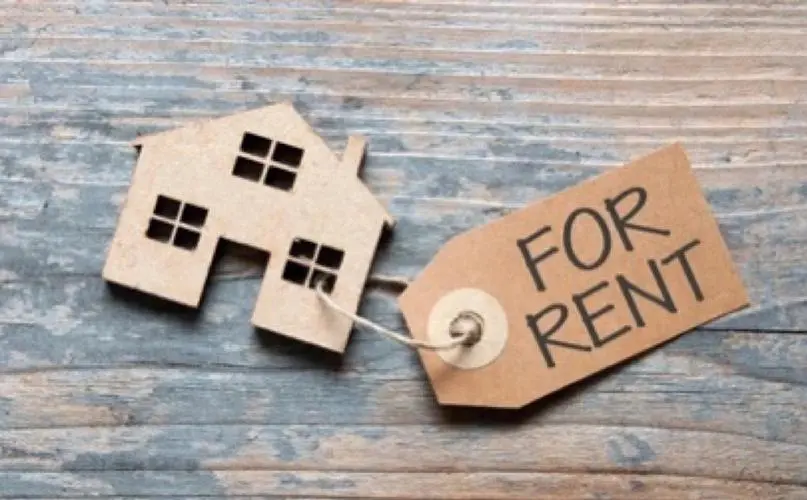It’s February 2024, and it’s not much longer until the 24th year of S1 starts in Australia. There are a lot of new international students who have already arrived in Australia and have already rented an apartment or are preparing to rent an apartment. There is also a group of students who may have already finished their language classes and are ready to change their apartment to move into a new one.
Although I have already graduated and left Australia, I would like to share some Tips on saving money. Especially the bond money. I found that many people may pay more attention to what kind of house I should rent to save money, what type I should rent, what to avoid stepping on the mine, etc. But there is one point many people seldom or do not mention: after you rent a house, how can you ensure you will not be the landlord? This situation is how to say that ” rare ” is not, ” and ” uncommon ” is not very common.
Maybe you don’t know that in Australia, landlords and agents have the right to inspect the property during your tenancy.
Inspect the Room
That is, during your rental period, every once in a while, the agent or landlord will send you a message in advance, asking when they want to go to take a look at the room. The main thing is to see how well the house is during your stay and whether there are contract violations, such as keeping pets, smoking, bringing people home, damaging the house, etc. If it is filthy, the agent or landlord will have the right to inspect the house.
Clean the House
There is also a requirement to clean the house when you finally return the rent, and if you have purchased furniture, you need to dispose of it on your own and cannot leave it in the room unless the landlord or agent agrees. We have to get a local cleaner to check out the rent. If you want to save money by cleaning the room yourself, it’s OK if you are renting a shared room. You don’t need to find a cleaner to make the return. If you are taking the whole house, which is not a studio but a two-room apartment, it’s pretty tiring to clean it. We get the cleaning done directly, but if you ask the agent to do it. It may be more expensive; most of their cleaning is local.
Exit cleaning is usually charged by the time, and if you need to add someone quickly, you must pay extra. It also depends on how easy it is to clean your whole house. If it’s too messy, it will cost more. To spend less money, it is advisable to do a good cleaning in general; I was doing a weekly cleaning. This way, you can save some money when you quit the lease. When the landlord or agent comes to check the room, it’s better to talk about it. At least they won’t have trouble.
While working part-time, I had a few colleagues who shared a room. When they talked about the house that night, they said they would go back tonight and hurry to clean up their things and that if something happened tomorrow when the agent came to check on the room, We were out of luck.
I share five tips today; most are my experience and some things that happened around me. Pay attention to these points; your bond gold keeps.
Point 1: Cooking.
If you are studying in Australia, whether it is a shared room, also good, or going to take the whole house is also good. If you usually cook by yourself, especially Chinese food mostly, then in the kitchen, hygiene, this piece is must pay attention. But when you clean every week, you must use grease cleaner to clean that place.
Australia’s house decoration is complicated to say. If you live in a relatively newly renovated house, it may be that the wall behind the cooker is a large piece of tile, and the seam is very narrow, so this is perfect.
But the most afraid of it is that it is not a large tile; maintenance should be meticulous.
The first house I rented before was an old unit in Goodwood. And it had this old-style one-piece gas stove and an electric stove. It was primarily white, and the surround of the one-piece stove itself was not very high, as was the wall behind it. I forgot what it was. It was not easy to clean anyway.

The first house I rented was not a large tile but a smaller one. This was the house I rented then, and the paste was a kind of colourful mosaic block, a big seam or white. During the cooking period, you should pay attention to the fact that the cooking taste is relatively heavy. Spattered oil will have to hurry to wipe or stay on it, especially on that seam, which is particularly difficult to clean.
I also looked for another room type; some cookers here are not all pasted, which is also a headache. It is best to look at the room when your touch is not smooth and good cleanup.

Do it as you go, no matter what wall you encounter. Don’t let it solidify on the wall. Be sure to have a bottle of kitchen grease remover. It’s sold everywhere in the supermarket and works—every week when cleaning this piece of focus to wipe. The best thing to do is to wipe and develop a good habit of cleaning as you go. The back can save a lot of work.
If you do not want to clean, buy high-temperature anti-oil stickers, stick them on the wall on the line, and save the usual wipe.

The premise is that the walls of the cooker are tiles or not putty, painted walls of smooth, sound-rubbing walls. Otherwise, you’d better buy this kind of baffle.
Anti-grease stickers must buy the back electrostatic adsorption or sprinkle some water that can be stuck on the electrostatic stickers. I do not believe that the seller said not to leave glue, but in any long-term paste wall and high-temperature environment, in more cases, deformation is a sure thing. I do not recommend that you take the risk of buying this. If you have used it for a long time, tear down will not leave glue, which is no problem.

If you stick to the time to reveal it, it isn’t very comfortable and may not come off. Even if you can remove it, if you leave a large piece of adhesive, it’s not easy to remove when you clean it. The landlord or agent may also deduct your fee. If the wall is not good to paste, that’s okay; you take the tape to put the corners on it. You’re better off than a big blob of adhesive that sticks together and eventually can’t be removed.
If you are already in Australia, you can go to Daiso in every city in Australia. I bought the grease stickers from the Daiso in Ade Rundel Mall underneath the close. They were about 3 dollars each, and the grease baffles were there as far as I can remember. I remember the grease baffles. After I get it, I usually don’t wipe it. My landlord was very satisfied with what I did when he saw me put it on and didn’t ask me for anything during the rental period. I suggest that cooks often buy a, or else when you return the rent if it is not cleaned. Then, deduct your bond money or return the rent cleaning because here and then, spending more money is not worth it.
Point 2: Carpet

I don’t know why Australian houses always like to install carpets; it’s too troublesome to clean. General carpet rooms are mostly decorated in the bedroom, kitchen, living room, and bathroom and are not carpeted. If your bedroom is carpeted, you eat better than in the bedroom. It is excruciating to clean if you accidentally spill on the carpet. If it’s just a spill of water, coffee or something, it’s okay. But if it is a meal with soup or something like that has a taste or even a heavier oil, a timely wipe may be okay; if the time is a little long, it will be easy to leave stains. Either you have your cleaning machine to clean the carpet, or you must find a cleaning. You can’t just call a cleaner to clear this point, and it’s quite a hassle if you wash the carpet.
Many people in Australia like to dye their hair. After all, hair dye is cheap, and you can dye your hair in the house. If you want to dye your hair, don’t put hair dye on the carpet in the bedroom. Leaving traces is easy if you haven’t paid attention to wiping it off in time. The landlord doesn’t mind, but you’ll have to pay the bond if you don’t mind. Some landlords or agents even threaten you to change the whole room’s carpet, which will cost you more money.
In addition, some are smokers, so it is best to see whether the contract stipulates no smoking. If so, it is best not to smoke in the carpeted room, because the carpet absorbs odour will be detected. If you burn a hole, you’ll be fine if it’s light, but you’ll lose money if it’s heavy. When I rented a house before, I found signs of staining; I don’t know whether I deducted cash. Anyway, I’d avoid a carpeted house if you can, but for the hard time of renting a home in Australia, take care of it.
Point 3: Pets

If you are studying in Australia, don’t keep a pet while you are studying until you get your PR or decide to stay in Australia for a long time and find a stable job. Most of the rentals in Australia are written on the rental website, stating that no pet is allowed to keep pets. You secretly keep pets once the landlord or agent checks the room found that the light will let you send the pet away quickly and will not be pursued. Heavy words will violate your contract rental contract because you were kicked out. I do not recommend that you keep it.
If you want to keep it, the landlord agrees to do it. Especially for friends with cats and dogs, it is recommended that you do not choose the carpet room when choosing a house. It would help to find a home with a paved wood floor or tile. This way, you can minimise your losses because you can’t avoid pets peeing in non-toilet bowls. Especially cats, if they pee on the carpet, no matter how much you clean it up, the cat will know that the place smells and will most likely pee again. Then the carpet might be ruined, and then it’s a problem to deal with.
A friend who lived in a city flat had a cat that peed on the carpet. It was tough to clean up, and in the end, the landlord had to replace the carpet in the whole room, which cost him thousands of dollars.
Point 4: Garden
If you are not renting a flat or a house with its yard, or you take the whole house, generally the landlord or agent of the house planted greenery is very concerned. Read the contract to see if the tenant is responsible for watering the plants and who will do the trimming. In most cases, the tenant is only required to water, and the landlord or agent usually does the pruning and pest removal.
If you rent this kind of house, look at how often it will be watered and when it will be pruned. Then you must water on time and tell the landlord or agent if you find any problems. First, this is written in the contract: if it says you don’t do it on time if the plants die, you will pay for it, and plants in Australia are not cheap.
The landlord asked us to be responsible for watering in my previous house. They would contact me regularly to come and prune, usually saying when they want to go and when you will be home. I water every night when it’s dry and every two or three days when it’s raining to ensure the plants are growing correctly. Ask your landlord or agent if you are unsure how often to water. Australia cares a lot about their gardens and plants.
- It is essential to mention that the tenant is responsible for this part of the water bill. Generally, Australians renting a house to pay the water bill are divided into these cases:
The landlord or agent is responsible for the sewerage charges, and the tenant pays the water bill. - How much water will the landlord or agent pay each quarter, or will they pay each year, and will the tenant pay for the rest?
- There is also how much to pay the tenant for unlimited use
Specifically, it depends on how the contract is stipulated. If the tenant pays the water bill, then the watering water is also out of your pocket; be sure to turn off the water pipe after each watering. Otherwise, the deducted water bill is all yours. Water in Australia is still quite expensive, but it is not cheap.
Point 5: Hole Punching/Sticky Hooks

In my experience, you should never make holes or stick hooks on the wall. This is a pit I once stepped on myself to share with you.
No matter how much freedom you have in renting a house, at the end of the day this is a house you are renting, home ownership is not you. Even if you want to make a hole in the house because you are moving the NBN, always ask your landlord if you can. And if you can’t, then give up. You are damaging the house for them, and they can ask you for compensation. At the end of the rent, the collection will also be in the home inside and outside one by one check.
Some say I’ll put in a non-marking nail or stick a hook. Is that OK? My advice is that you better not do that either.
It’s not that you can’t see the marks if you hit a non-marking nail. It’s still nailed into the wall, just that the original one big hole has been turned into four tiny holes, but it will leave marks on the wall. Besides, wouldn’t the landlord and agent know if there was anything in the house initially? If you suddenly hang something up, won’t you see it this time?
If you let you take it down, you’ll have to repair the small holes caused by the non-marking nails. Some walls have a layer of paint, so if you can’t match the colour, you can’t cover it up, and then it’s all a matter of time.
The other thing is the sticky hooks. I suggest you don’t stick them either. I was sticking a sticky hook on the wall, and I thought that the wall would be smooth. But I didn’t realise that the wall was just painted. I couldn’t get it off, so I took a hair dryer and heated it a little bit, and it still came off a little piece of wallpaper.
But my landlord is quite good; I told him about it. And I don’t know the paint is colour. I am willing to compensate. He looked at the diameter of about one or two centimetres and said it was fine; it was still okay. I was lucky I didn’t pay for the damages, but I don’t think anyone is fortunate. Be honest if you rent a house and don’t care how good the landlord agent is. When you come, ensure it’s what it is. Never, never, never stick or nail anything on the wall. It’s not you who owns it; you’re just the tenant.
Renting an apartment abroad has a more mature and strict system and regulations. And whether the person who rents to you is local or Chinese, people are not the same. You can’t put a filter on local people and think that they are all good people. Local people also have a lot of careful eyes and foul water. Anyway, as a tenant, you should maximise the maintenance of the house and abide by the contract. As long as you don’t have any problems, you can get out of the lease and hand over the house.
FAQ
Ensure that the property is in the same condition as when you moved in, report any damage proactively, adhere to the terms of your lease, and perform a thorough cleaning before the final inspection.
Absolutely. Conduct a detailed condition report, take date-stamped photos or videos, and ensure any existing damage or issues are officially recorded to protect your bond.
While not always specified, a professional cleaning service is often expected for the end-of-lease cleaning to ensure it meets the high standards typically required by landlords.
Pay close attention to areas often overlooked, such as ovens, range hoods, bathrooms, windows, and carpets, as these can be hotspots for deductions.
The bond should typically be returned within 10 to 14 days after the lease has ended and the property has passed the final inspection or whenever the landlord and tenant reach an agreement.







